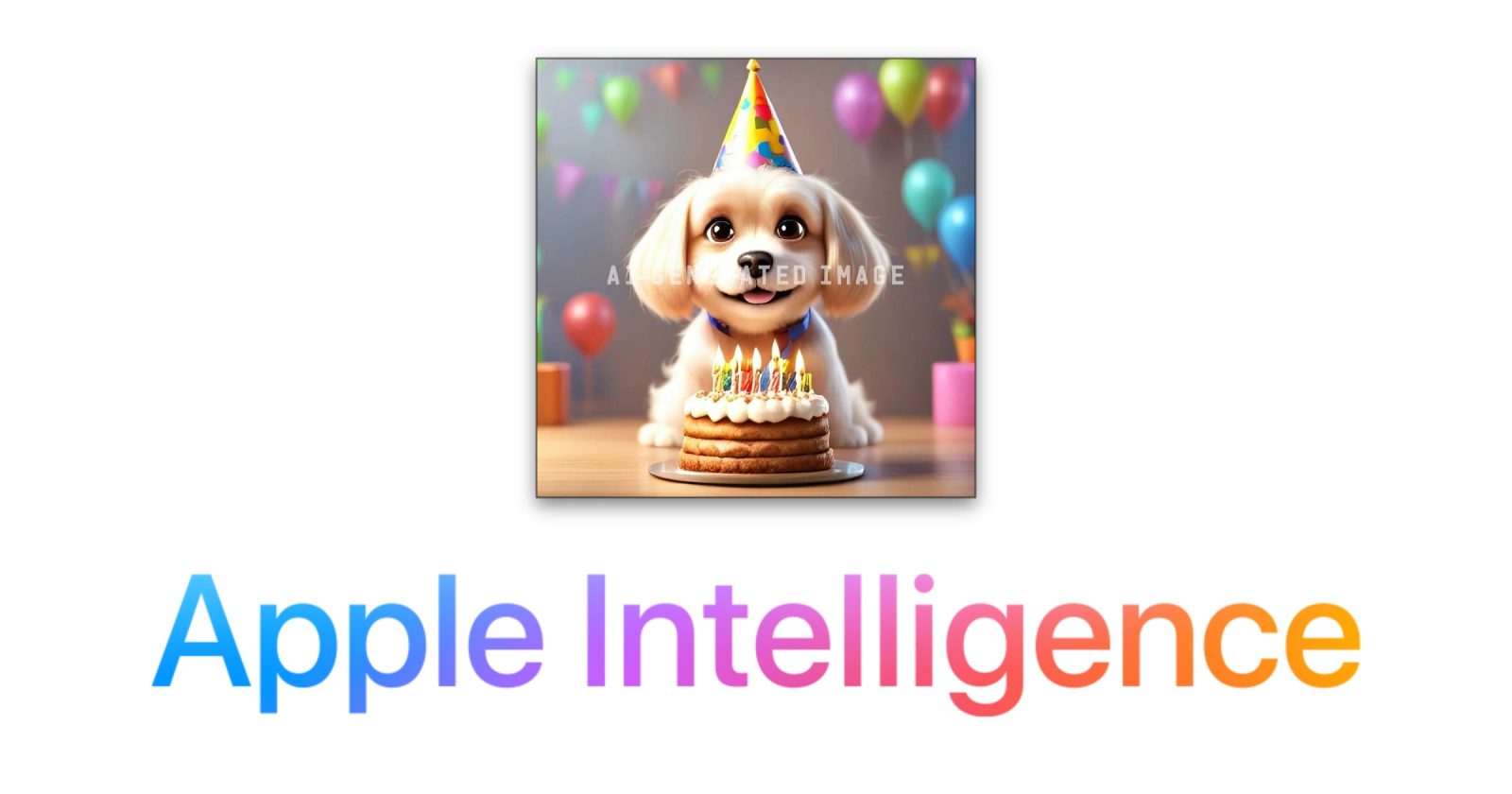
Apart from some marketing materials, we have not yet seen Apple Intelligence image generation features in action. Image Playgrounds and Genmoji are not currently available in the iOS 18.1 Apple Intelligence betas; they are rumored to launch as part of the iOS 18.2 cycle later this year.
However, Apple has today shared a real-world example with WIRED magazine. Pictured above, adorned with a AI watermark applied by WIRED, it depicts Apple SVP Craig Federighi’s dog.
To be clear, Apple sent the un-watermarked image to WIRED to be published; WIRED applied the ‘AI-Generated Image’ disclaimer text across the center of it, in accordance with their website’s policy on featuring AI works.
When Image Playgrounds is available to customers, there will be no visual watermark applied to the photos. EXIF metadata included in the file will signal it was made with AI, as we’ve already seen happen with the Photos’ Clean Up feature. This means iOS and other apps will be able to indicate which images are generated by the AI tools. However, file metadata can be removed using commonly available tools, and similarly if the image is screenshotted, any metadata of the original image is lost.

In terms of risk of deception, though, Apple’s image generation suite will not fall foul of being mistaken for reality. This is because Apple is intentionally starting with a limited set of non-photorealistic styles: users can pick from “animation”, “sketch”, or “illustration” style.
Craig’s dog image appears to have been generated using the animation style, which are seemingly meant to look like Pixar-esque CGI models. It’s hard to judge how much the AI creation actually resembles Craig’s dog, named Bailey, as we don’t have a photo of her to compare against.
In the AI image, Bailey is situated in front of a cake and wearing a party hat, as Federighi made the image for his wife to celebrate Bailey’s recent birthday. Image Playgrounds lets user enter a text prompt to customize the kind of output they want.
When it ships, Image Playgrounds will be available as a standalone app, as well as built-in to communication apps like Messages; concepts relating to the current conversation context will automatically be suggested.
You’ll need an iPhone 15 Pro or later to get Apple Intelligence, or an iPad or Mac with the M1 chip or later. The first round of Apple Intelligence features will launch alongside iOS 18.1 in October, in the United States. Other variants of English will be supported starting in December, with other languages coming onboard next year.
Apple Intelligence features will not be available to customers in the European Union, until Apple can resolve compliance with EU laws. In an interview with WIRED, Federighi said “we do have to comply with regulations, and there is uncertainty in certain environments we’re trying to sort out so we can bring these features to our customers as soon as possible”.
FTC: We use income earning auto affiliate links. More.





